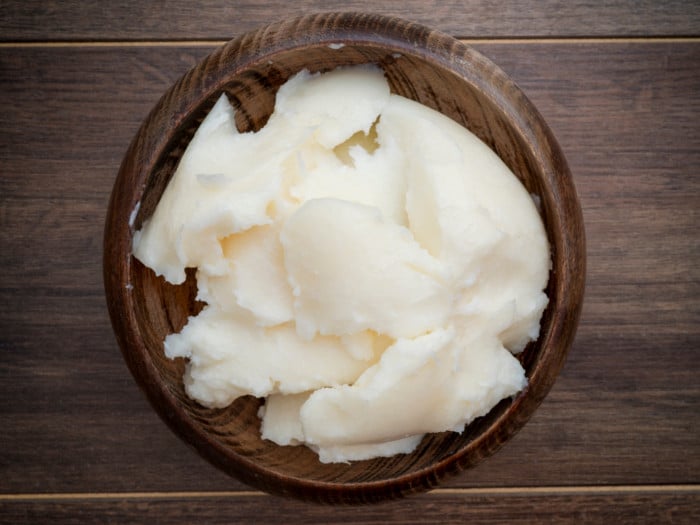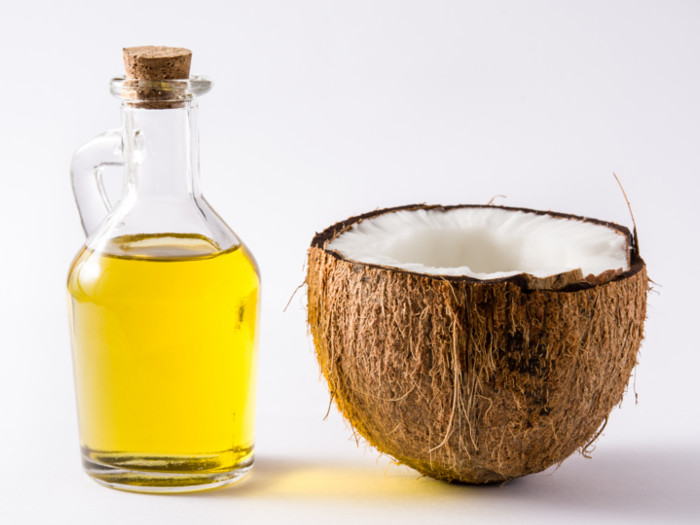Knowing the best lard substitutes can help you adapt traditional baking and cooking techniques to vegetarian and vegan diets, as well as to religious diets that restrict pork consumption.
Lard Substitutes
Lard substitutes are the most effective when they behave similarly to the rendered fatty tissue from a pig. In actual lard, the rendering process both purifies and stabilizes the fat through boiling or cooking, which separates out water and other impurities. Traditionally, lard is used to give a moist and flaky texture to baked goods, such as pie crusts, or as a cooking fat in Mexican, Chinese, and Central European cuisines. While lard’s use declined in the 20th century, it has become popular again with many chefs, bakers, and home cooks for its unique flavor and high smoke point, or temperature at which it starts to burn. [1]

Lard is particularly favored for the preparation of pastry because of the “flakiness” it provides. Photo Credit: Shutterstock
Because lard is made from pig fat, its use can be problematic for many reasons. For those with heart or arterial diseases, the high saturated fat and cholesterol content of lard makes replacing it necessary. Vegetarians, vegans, and others who wish to eliminate animal products from their diets will avoid lard. Also, religious restrictions on eating pork products, such as in kosher or halal diets, rule out the use of lard. While it does have a unique flavor, there are many widely available lard substitutes such as beef tallow, butter, vegetable shortening, coconut oil, and mashed banana for use in both baking and cooking.
Beef Tallow
Made from the fat of cows using a similar process as lard, tallow is a common substitute for lard in kosher and halal cooking. [2]
Butter
Often used in baking and cooking, butter is a vegetarian replacement for lard. In pastries and pies, it mimics the flakiness and moistness of lard very well.
Vegetable Shortening
Made from vegetable, soybean, or palm oils, vegetable shortening was the most common lard substitute in the past century. Although the fat and cholesterol levels are similar, it contains no animal products and therefore can be included in vegan diets.

Coconut Oil contains Fatty Acids With Potent Medicinal Properties. Photo Credit: Shutterstock
Coconut Oil
For recipes that call for lard as a cooking or frying fat, coconut oil can be an effective replacement, as it also has a high smoke point. [3]
Mashed Banana
In certain baked goods, such as muffins and cakes, substituting mashed ripe bananas for lard can impart a moist texture, while also eliminating fat and cholesterol.
